Area economic development leaders collaborate on lobbying lawmakers

How well does Southeast Missouri advocate for itself with state lawmakers? More specifically, how does the area stack up with the rest of the state?
While Southeast Missouri chambers of commerce and economic development leaders have a good working relationship, there has been little collaboration until recently when it comes to lobbying the General Assembly. As a result, other areas of the state have had more success than this part of the state in getting their priorities funded.
Take, for example, the Springfield Area Chamber of Commerce. Several sources told B Magazine that the Springfield Chamber decides on a set of priorities each year and speaks with one voice about what they hope to see accomplished. It’s been effective for Southwest Missouri as they seek to fund their economic development priorities.

A group of Southeast Missouri economic developers are now taking a page from the Springfield Chamber’s playbook in hopes of making an impact for this part of the state.
Last summer, the Cape Girardeau Area Chamber of Commerce Business Advocacy Committee reached out to 13 other chambers of commerce and economic development groups to talk about their legislative priorities. The organizations included: Farmington Chamber of Commerce, Jackson Area Chamber of Commerce, Ste. Genevieve Chamber of Commerce, Perry County Economic Development Authority, Perryville Area Chamber of Commerce, Bollinger County Chamber of Commerce, Scott City Chamber of Commerce, Sikeston Regional Chamber of Commerce and Area Economic Development Corporation, Dexter Chamber of Commerce, East Prairie Chamber of Commerce, Poplar Bluff Chamber of Commerce, Kennett Chamber of Commerce and SE MO REDI.
Rob Gilligan, president and CEO of the Cape Chamber, said the group met in July to discuss key legislative advocacy issues that all 14 organizations agreed were important in their communities. From that conversation, they developed a list of areas of focus: Agriculture, health and wellness, economic development, transportation, infrastructure, family care, rural development, education, workforce development and public safety.
The group reconvened in September 2023 and brought in subject matter experts from each community to provide insight on the areas of emphasis. About 50 individuals participated in this meeting with four to nine people around the table for each policy issue. Gilligan said from this meeting the work groups started to draft recommended language for the legislative priorities that would represent the broader needs of Southeast Missouri.
“Each of those groups reported out to the larger group for any feedback or comments,” Gilligan said. “Then everything was collated into a document for each of the committees. The working groups had a second review of those comments. So we sent it back to them and said, ‘Okay, here's the information that your group provided. Here's it distilled down into positions of advocacy, or potentially some positions of opposition. We would oppose legislation that does X, Y or Z.’”
After another review by the working groups, the issues were packaged into a single document that was sent out to the participating chambers and economic development organizations for their approval.
The issues, according to Gilligan, are broad in nature and could apply to each community, including topics like fully funding the education model in Missouri. That means individual communities will still have needs to push for in addition to the regional efforts, but this collaborative effort brings greater influence on the broader topics.
Gilligan said the Springfield Chamber’s document was a template for the Southeast Missouri region, though the two regions didn’t focus on the same topic areas. The other difference is that Southwest Missouri recommendations come from the Springfield Chamber of Commerce, whereas this area’s recommendations are being presented on behalf of a group of chambers and economic development organizations.

Crystal Jones, executive director of the Perry County Economic Development Authority, was happy to see the group formally come together in a collaborative way. She noted that Southwest Missouri is well organized; they have a plan and stick to it when lobbying the General Assembly. And it’s worked for them in securing public investment on key programs and services in their region.
“It seems like that has really worked well for them,” Jones said. “They get a lot of support from the state, so kudos to them. We need to follow their playbook and organize ourselves and become one voice. So, this was really important. And I was really glad that the Cape Chamber took the lead on putting this together.”
Alisha Trammell, executive director and economic development coordinator for the Dexter Chamber of Commerce, said it was important for her organization to support the effort because many of the challenges these Southeast Missouri communities face cross city and county boundaries.
“We felt a cohesive regional approach will allow us more of a comprehensive understanding of the challenges and the development in our area,” Trammell said. “We’re going to be stronger together. And having a united front between our region just creates a more powerful and influential voice.”
Trammell said it was “shocking” to see how many of the chamber executives were facing the same challenges in their communities. She suggested transportation was one of the big issues.
“We kicked that off pretty quickly. Within that initial meeting, just how important transportation is, particularly the I-57. Funding for that. That's something that is going to affect the entire region, not just the towns of Sikeston, Dexter and Poplar Bluff,” Trammell said.

Trammell added that infrastructure costs, particularly with site development, was also an area where the organizations found common ground.
“Those are large expenses. And each of us are dealing with issues with increasing the availability of the infrastructure to make sites ready for industry.”
Family care is a topic that several of the chamber leaders championed. It’s also receiving some early attention during the legislative session.
“Child care is a huge issue, especially the ages of birth to 2 years,” Trammell said. “Many of the daycare providers, especially in the Dexter area, are only licensed for 2 years and older. For those people that are looking at starting a family, that's a burden to them. Many women are deciding to stay home, especially in those first couple of years of their children's lives. So, we're taking out qualified and educated women out of the workforce to stay home and take care of their kids.”
Trammell said this collaborative effort has the potential to help the area’s economic development leaders better leverage their strengths and resources.
“We will use each other to find out what each other's challenges are and what their successes are, and collaboratively we can come to be more of a successful region within Southeast Missouri,” she said.
Jones said all the categories work together to address economic development in the region and they are also issues that will resonate elsewhere in the state.
“Economic developers have a state association called Missouri Economic Development Council,” Jones said. “Some of the things that we were talking about that would be our Southeast Missouri priorities are also statewide and MEDC priorities. So, we're all speaking the same language across the state, feeling the same needs. … So, I think we can have a bigger voice that way, as well.”

Jackson Area Chamber of Commerce President Brian Gerau said developing a unified voice and getting organized regionally is one of the most important things to come out of this process.
“When you talk about advocacy on the statewide level, sometimes perception is key. If we're perceived of not being unorganized, that's probably going to pass and we're going [to] get that reputation,” Gerau said. “So first and foremost, we want to be able to collaborate. That way we can basically have the same strategies and use some of our resources, so we can promote Southeast Missouri and really have everybody on the same page. So, you don't have multiple groups from Southeast Missouri, and we have mixed messages. That's one of the key things about regionalism, and especially in advocacy, you have the same message. That is so key.”
Gerau said each community basically had the same needs whether they had a population of 10,000 or 50,000 people. One of the top three issues, he said, was childcare.
“We need as many qualified individuals in the workforce as we possibly can get,” he said. “And if somebody is forced to have to stay home with their children, that's a qualified person that can be in the workforce. But we also have to make sure that we have affordable childcare, because you just don't want to throw that out there and it's not feasible for mom or dad to have to take on a second or third job to pay for childcare.”
Gerau said this group was ready to compete with the rest of the state and raise the profile of Southeast Missouri.
“I would say the other three corners of the state better watch out, because we're coming,” he said. “We've got massive amounts of talent that are pushing this initiative. I think we're very diverse in perspectives, but we're unified on our goals. And I think the people that are sitting at the table are driven to really promote Southeast Missouri as a destination. And it's exciting to get that much talent around the table with that much energy.”




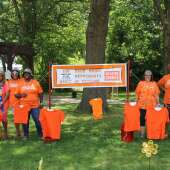




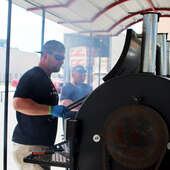




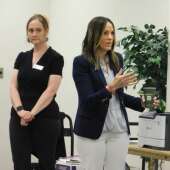
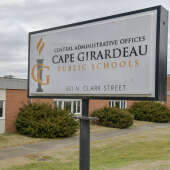





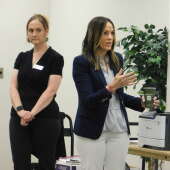
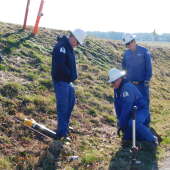
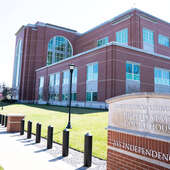






Respond to this story
Posting a comment requires a subscription.